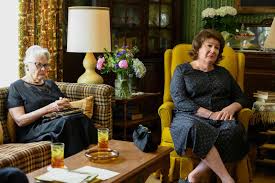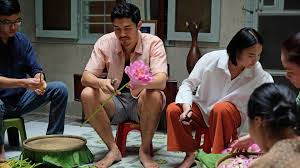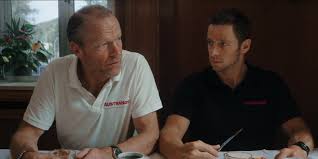One of Iceland’s two top films in 2020, this is the portrait of a man in the process of grieving but with the added touch of revenge upon discovering that his recently bereaved wife was having an affair with a younger man.
Ingimundur is a policeman approaching his 60´s. He is renovating a small cottage in the countryside for his daughter while on bereavement leave. He spends a lot of time with his young granddaughter Salka (Ida Mekkin Hlynsdottir, very good).

When he is strong enough to go through his wife’s belongings, he realizes that she was having an affair and starts to stalk the younger man. Although he is having therapy, this is ineffectual and we watch as he starts to fall apart in a very controlled Scandinavian way as he deals with a physical loss and a loss of memories, realizing that his wife was not really the woman he knew. This leads in the last part of the movie to him becoming violent and unpredictable as he tries to cope with all these attacks on his masculine self-image.
Hlynur Palmason gives us both the Icelandic slow-burner, set in the bleak and harsh weather of this Nordic isle but also a look at how men cope with being cheated on and with losing their feminine support, making it hard in a masculine context to process some of these issues. The relationship with the granddaughter compensates in part but also shows how hard it is to replace an adult support with a young girl.

There are some surprising scenes and some that are quite beautiful but Palmason also keeps things very mundane as well, showing that this could be any of us.

Ingvar Sigurdsson is first rate in the lead role. There may be some rather obvious symbolism in parts but other plot developments are not always so predictable. Not a classic for sure but it is a very well crafted psychological portrait with aspects of a thriller.

4 stars


















































































